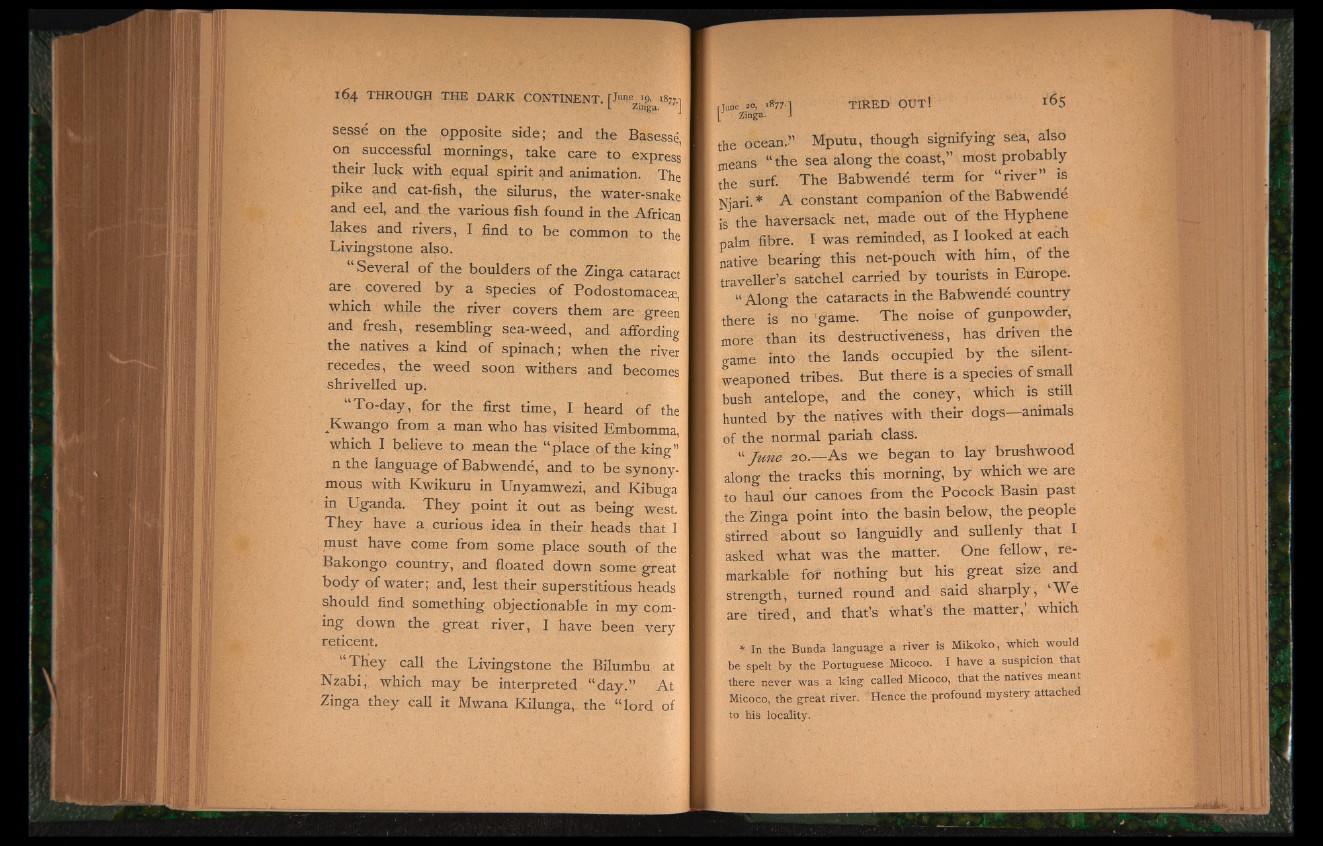
sesse on the opposite side; and the Basesse
on successful mornings, take care to express
their luck with equal spirit and animation. The
pike and cat-fish, the silurus, the water-snake
and eel, and the various fish found in the African
lakes and rivers, I find to be common to the
Livingstone also.
Several of the boulders of the Zinga cataract
are cpvered by a species of Podostomaceae,
which while the river covers them are green
and fresh, resembling sea-weed, and affording
the natives a kind of spinach; when the river
recedes, the weed soon withers and becomes
shrivelled up.
“ To-day, for the first time, I heard of the
Kwango from a man who has visited Embomma,
which I believe to mean the “ place of the king”
n the language of Babwende, and to be synonymous
with Kwikuru in Unyamwezi, and Kibuga
in Uganda. They point it out as being west.
They have a curious idea in their heads that I
must have come from some place south of the
Bakongo country, and floated down some great
body of water; and, lest their superstitious heads
should find something objectionable in my coming
down the great river, I have been very
reticent.
“ They call the Livingstone the Bilumbu at
Nzabi,. which may be interpreted “ day.” At
Zinga they call it Mwana Kilunga, the “ lord of
riune *0, 1877-1 TIRED OUT! i 6 5 Zinga'. I
the ocean.” Mputu, though signifying sea, also
means “ the sea along the coast,” most probably
the surf. The Babwende term for “ river” is
Njari. * A constant companion of the Babwende
is the haversack net, made out of the Hyphene
palm fibre. I was reminded, as I looked at each
native bearing this net-pouch with him, of the
traveller’s satchel carried by tourists in Europe.
“ Along the cataracts in the Babwende country
there is no 'game. The noise of gunpowder,
more than its destructivehess, has driven the
game into the lands occupied by the sxlent-
weaponed tribes. But there is a species of small
bush antelope, and the coney, which is still
hunted by the natives with their dogs— animals
of the normal pariah class.
“ June 20.— As we began to lay brushwood
along the tracks this morning, by which we are
to haul our canoes from the Pocock Basin past
the Zinga point into the basin below, the people
stirred about so languidly and sullenly that I
asked what was the matter. One fellow, remarkable
for nothing but his great size and
strength, turned round and said sharply, We
are tired, and that’s what’s the matter,’ which
* In the Bunda language a river is Mikoko, which would
be spelt by the Portuguese Micoco. I have a suspicion that
there never was a king called Micoco, that the natives meant
Micoco, the great river. Hence the profound mystery attached
to his locality.